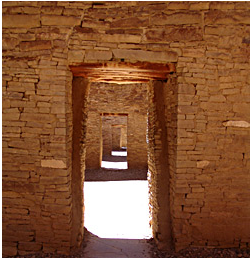Publication Date
6-5-1937
Abstract
The present study was begun with the aim of determining what ceramic types are present in the Rio Puerco valley of the East, with consideration of their source, extent, variations and contributing factors. Due to the limitations of time the investigation was confined to the south-central portion of the area. Because the region is approximately one hundred and forty miles in length, from the northern headwaters of the Rio Puerco to the junction of the Rio Grande and Rio Puerco, it was considered best to limit the survey to a portion of the valley large enough to yield sufficient data for a study of this nature.
Keywords
Pueblo Pottery, Ancestral Pueblos, Rio Puerco, Mesa Verde Black on White, Santa Fe Black on White
Document Type
Thesis
Language
English
Degree Name
Anthropology
Level of Degree
Masters
Department Name
Anthropology
First Committee Member (Chair)
Donald Dilworth Brand
Second Committee Member
Florence May Hawley
Third Committee Member
Edward Franklin Castetter
Recommended Citation
Luhrs, Dorothy Louise. "The Identification and Distribution of the Ceramic Types in the Rio Puerco Area, Central New Mexico." (1937). https://digitalrepository.unm.edu/anth_etds/118
Rio Puerco Archaeological Survey
luhrs_type_table.tif (22554 kB)
Table of Ceramic Types
LUHRS_PLATES_IDENTIFICATION_DISTRIBUTION_CERAMIC_TYPES.pdf (1223 kB)
Ceramic Type Plates
Included in
Archaeological Anthropology Commons, Ceramic Arts Commons, Social and Cultural Anthropology Commons

